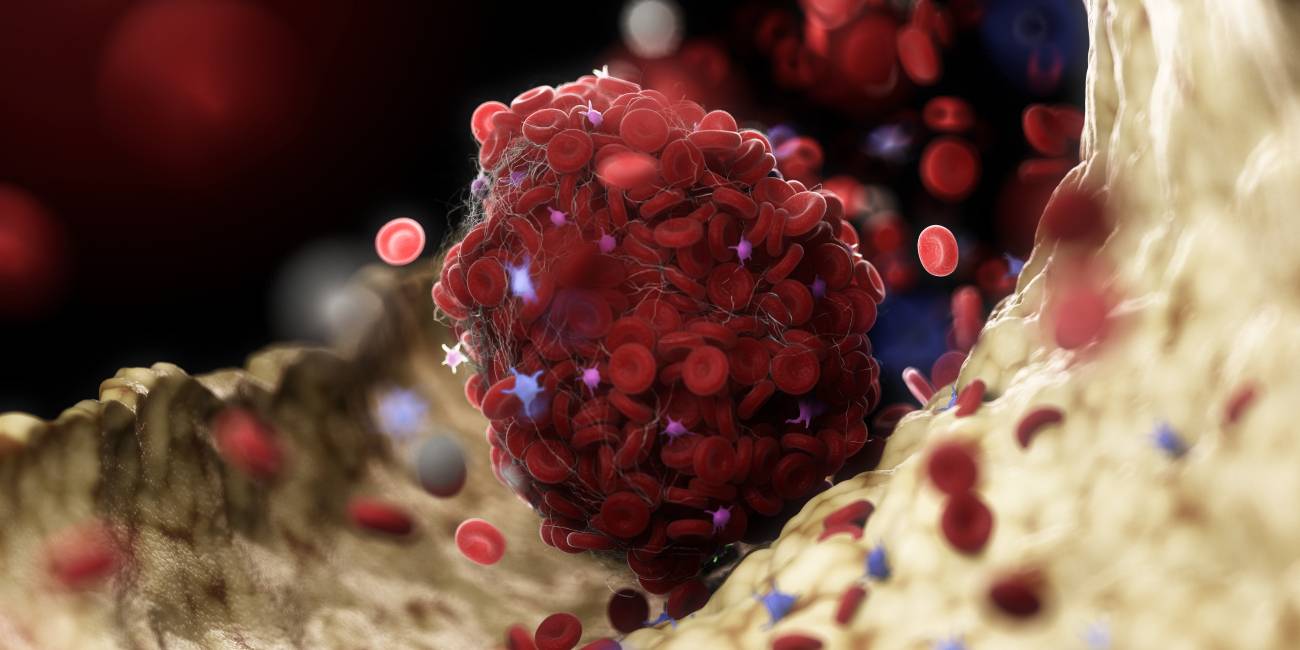Reactions to the study quantifying the risk of developing thrombosis following covid-19
A study published in the BMJ concludes that covid-19 is a risk factor for developing venous thrombosis, pulmonary embolism and haemorrhage.

Inmaculada Roldán Rabadán - trombosis
Inmaculada Roldán Rabadán
Cardiologist of the Cardiovascular Thrombosis Group of the Spanish Society of Cardiology
It is an important, retrospective study, looking at the medical records of more than a million patients, very well matched with people who did not have covid-19 as a control. Such a large number of patients almost makes up for the drawback of not being a randomised study, which was not possible. The results confirm what we already sensed. They show that covid-19 increases the risk of venous thrombosis - we know that it also increases the risk of arterial thrombosis, but this study focuses on venous thrombosis, and finds that 70 days after severe covid-19 the risk of venous thrombosis is much higher. It is also noted that this effect is clearly attributable to covid-19 and not to other factors.
The authors have also studied the risk of pulmonary embolism, and find that it is much higher even six months after severe covid-19 has been overcome. Pulmonary embolism is found to be very important and is not directly related to venous thrombosis. The pathophysiology of this pulmonary embolism is not exactly the same as what we usually know, but is related to the development of the cytokine storm, and the stimulation of anticoagulation that occurs with covid-19.
The third effect studied is bleeding, and again a higher risk is detected after severe covid-19 or ICU admission.
The risk of suffering these effects is higher in patients who underwent covid-19 in the first wave, which is to be expected since we then had fewer tools to manage the disease.
This result shows the benefit of anticoagulant thromboprophylaxis in patients with covid 19, although it is not estimated how long after the acute phase of the disease it is necessary to maintain this treatment. This is highly relevant for future management of the disease.
Erik Cobo - trombos
Erik Cobo
Statistician and doctor at the Universitat Politècnica de Catalunya - BarcelonaTech (UPC)
We must always be careful with observational studies like this one in which they stun with quantity without analysing quality.
1) They have millions of cases, but claim to have the necessary information on all of them: "No data were missing in our analysis". Can they assure me that they studied an inpatient with the same intensity as the same patient during other periods?
2) They have unrealistic numbers, with ratios of 30 to 50. A 50 times higher risk exceeds that of tobacco, which is hard to believe.
3) They do not discuss the weaknesses of the method: is it useful to take periods of the same patient without covid as a control? A carry-over effect between periods (e.g. the one who has fallen ill is protected for the future) would invalidate these estimates.
4) Most importantly, they do not discuss the different interpretations: "He who has fallen ill will fall ill again" (it is a relationship without causality, with predictive value only: it predicts that there will be complications but does not induce them, it does not "cause thrombus") versus "the fact of falling ill changes, increases, his predisposition to fall ill again" (causal relationship, "covid induces thrombi", which would anticipate a possible intervention: if you eliminate covid, you will eliminate thrombi) As an example, we ask the weatherman to anticipate it, not to change it.
They end up recommending thromboprophylaxis as if it follows from their study, although they have not studied it. It is a wish (thromboprophylaxis will prevent these thrombi), not a result; but they do not warn about it.
- Artículo de investigación
- Revisado por pares
- Estudio observacional
- No aleatorizado
- Humanos
